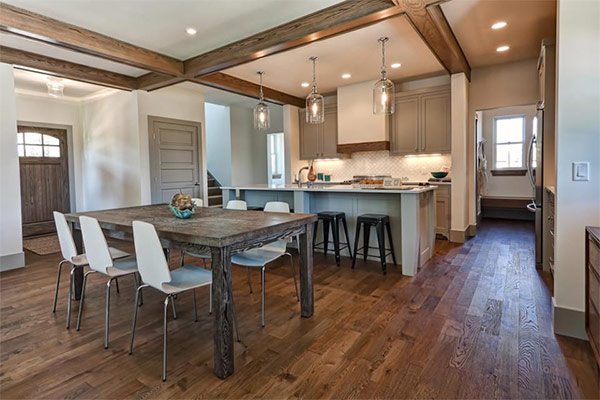

What do you look for when picking floors for your home?
The flooring beneath your feet plays a major role in your home’s value, style and comfort. In addition to adding natural beauty and sophistication to your home, hardwood flooring is hypoallergenic, easy to maintain, durable and available in a wide variety of styles and species, lending itself to almost any interior decorating style. If you’re concerned about the environment, we can help you make sure your hardwood flooring is eco-friendly as well.
The Value of Hardwood Flooring
No other materials add warmth and value to your home like hardwood flooring. Wood enhances the décor of any room and provides timeless, classic beauty that becomes more valuable over time. In fact, in a national survey of real estate agents, 90% said that houses with wood floors sell faster and for higher prices than houses without hardwood flooring. That’s money in your pocket!
The Basics of Hardwood Flooring
At Avery Flooring Co., we want to make sure each and every customer makes an informed decision; a basic understanding of the types of hardwood flooring available will help you make the right choice for your home. Both solid and engineered wood floors are available in many different species. The best type of floor for your home depends on its ultimate location and the type of subfloor.
Solid Wood Flooring
Regardless of width or length, all hardwood flooring that is one piece of wood from top to bottom is considered solid wood. With solid wood, you can choose species, stains and finishes to personalize your wood floors. This is an excellent choice in most areas of a home on the ground level or above. Find out more about this on our solid vs. engineered hardwood flooring page.
Engineered Wood Flooring
Engineered wood floors are made from layers of wood pressed together with grains running in different directions. Available in 3 and 5 ply, engineered flooring is perfect for areas of the home where solid wood might not be suitable, like basements, kitchens, powder rooms and utility rooms. Because the grains run in different directions, engineered wood floors are more structurally stable when compared to solid wood.

